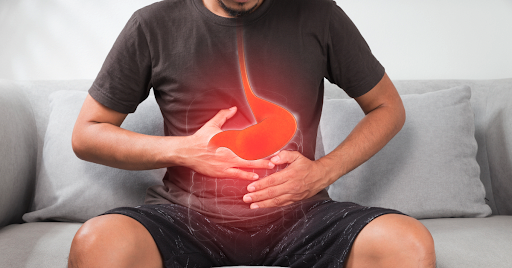Peptic Ulcers: What You Need to Know

Have you ever experienced a gnawing, burning pain in your stomach that seems to intensify between meals or during the night? If so, you might be one of the millions of people worldwide affected by peptic ulcers. These seemingly harmless sores can wreak havoc on your digestive system, causing discomfort and distress. But what exactly are peptic ulcers, and how can you manage or even prevent them?
Peptic Ulcers
Peptic ulcers occur when an open sore develops on the internal lining of your stomach. The three types of peptic ulcer include:
- Esophageal ulcers or ulcers located in your esophagus
- Gastric ulcers or ulcers located inside your stomach
- Duodenal ulcers or ulcers that are located in the upper portion of your small intestine
Here at Birmingham Gastroenterology, we are here to help educate you on peptic ulcers and how to identify and treat them.
Common Symptoms Associated With Peptic Ulcers
The most common symptom associated with a peptic ulcer is a sharp pain in the stomach area. Other symptoms include the following;
- Feeling full or bloated
- Recurrent burping or belching
- Intolerance to fatty foods
- Unexplained weight loss
- Heartburn
- Nausea
- Indigestion
- Vomiting
According to the National Library of Medicine, there are a number of warning symptoms that should prompt urgent referral. These include unintentional weight loss, progressive dysphagia, gastrointestinal bleeding, iron deficiency anemia, or a family history of upper gastrointestinal malignancy.
Causes Of Peptic Ulcers
The lining of your stomach, small intestine, and esophagus can be affected by a number of different factors. The most common of these, which can lead to a peptic ulcer, include:
- Bacterial infection in the stomach from helicobacter pylori (H. pylori)
- Frequent or long-term use of ibuprofen, aspirin, or other inflammatory medicines.
Other factors that can negatively affect the lining of your esophagus, stomach, and small intestine include lifestyle habits such as tobacco use/smoking and consumption of alcohol, as well as radiation therapy or exposure to environmental radiation and stomach cancer.
Complications Of Peptic Ulcers
Unfortunately, a peptic ulcer can be associated with certain complications that can be harmful to your well-being. The most common complications include
- Severe blood loss
- Scarring from an ulcer may make it harder for the stomach to empty
- Perforation or hole of the stomach and intestines
It is important to remember that peptic ulcers tend to come back if untreated. If you engage in lifestyle habits that increase your risk of developing a peptic ulcer, it is important to seek professional medical help if necessary and to avoid further complications.
Diagnosis And Treatment Of Peptic Ulcers
Your doctor will perform a physical examination and review your symptoms. If they suspect that you may have peptic ulcers, they will likely recommend a test for the H. pylori bacteria, as they are a common cause of peptic ulcers.
The test samples can be collected from your blood, breath, or stool. Your doctor may also perform an endoscopy, which involves using a device with a camera and inserting it into your esophagus, stomach, and small intestine to look for signs of peptic ulcers.
Treatment typically includes one or more of the following:
- Prescription antibiotics to kill the H. pylori infection.
- Medications that alter your body’s acid and acid production in order to promote healing of the peptic ulcer. These medications can block or reduce acid production or neutralize your stomach acid.
- Medications that help to protect the lining of your stomach, esophagus, and small intestine.
The board-certified physicians at Birmingham Gastroenterology Associates specialize in the diagnosis and treatment of a variety of digestive conditions, including peptic ulcers. To schedule an appointment, visit our website or give us a call at (205) 271-8000.

